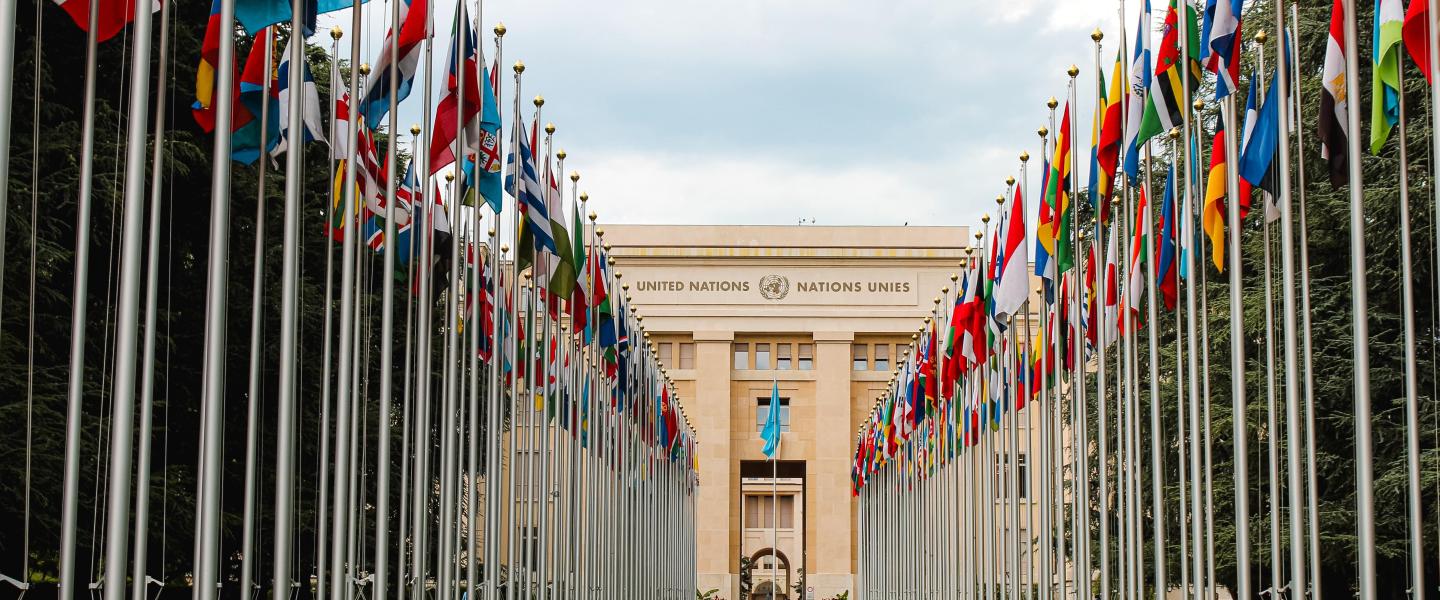Ten months after the release of the Geneva Declaration on Human Rights at Sea on 1 March 2022 in Geneva, Switzerland, a new exploratory podcast has been released through the University of Oxford discussing the Declaration’s origins and how acceptance of the document could potentially establish legal precedent.
Human Rights at Sea Trustee, Professor Natalie Klein’s lecture to the public international law discussion group at Oxford University in December 2022 outlines the opportunity for success in an NGO-led initiative and the ongoing development challenges of the soft-law approach to lawmaking in the maritime environment.
In the podcast “Geneva Declaration on Human Rights at Sea: Informal Lawmaking in Action?” Professor Klein highlights key issues and themes variously considered in undertaking the process of law development through NGO-led initiatives. The key points are:
- The extent and scale of human rights abuses at sea requires far greater focus from a variety of ocean stakeholders if victims are to receive protection and opportunities to seek redress.
- NGO-led initiatives, like the Geneva Declaration on Human Rights at Sea, have an important role to play in bringing global attention to these issues as well as promoting the potential role of international law in responding to human rights violations at sea.
- NGOs have brought about changes in international law, including through championing the adoption of new treaties, and these experiences provide lessons in international lawmaking.
- The Geneva Declaration on Human Rights at Sea reflects clear normative intent to guide State decision-making and shows what can and should be done now as a matter of practice to better protect human rights at sea.
Dr. Natalie Klein, Professor at UNSW Sydney’s Faculty of Law & Justice, Australia, said: “As a law of the sea academic, it is important to consider the diverse ways that informal laws may influence ocean governance and the potential impact NGO-led initiatives may have in international law. As a Trustee for Human Rights at Sea, I see the Geneva Declaration as one of the most significant endeavours that can lead to real change in how people are treated when they are in maritime settings.”
Reviewed by the Declaration’s original drafting team, the Oxford podcast provides another positive step forward for ongoing academic assessments to enhance the development of the document as it is socialised through state and non-state actors. The drafting team commented:
Prof. Dr. iur. Anna Petrig, Chair of International and Public Law, University of Basel, said: “While the Geneva Declaration is firmly based on existing international legal obligations, it refines and explains them and thus provides practical guidance to states on how to ensure human rights at sea. Enhancing clarity is key for better protection of people at sea. The Geneva Declaration has thus the potential to induce change.”
Dr. Elizabeth Mavroupoulou, Lecturer in Law University of Westminster, London, said: “Prof. Klein’s lecture timely highlights the Geneva Declaration on Human Rights at Sea as an NGO-led initiative that aims primarily at raising awareness on the legal challenges in ensuring respect for rights at sea and as potential groundwork for law-making in future. Further review of the Declaration and partnerships are necessary to see that goal come into fruition.”
Human Right at Sea CEO, David Hammond said: “Rigorous legal and academic assessment of the Geneva Declaration’s standing and content is critical to its eventual acceptance at State level. We warmly welcome Professor Klein’s intervention at Oxford University.”
Listen here: https://podcasts.ox.ac.uk/geneva-declaration-human-rights-sea-informal-lawmaking-action
Contact: If you have any questions, please write to us at enquiries@humanrightsatsea.org
About Sharing. We welcome the use and dissemination of our work with proper accreditation. Please ensure that our Terms of Use are conformed with at all times.
